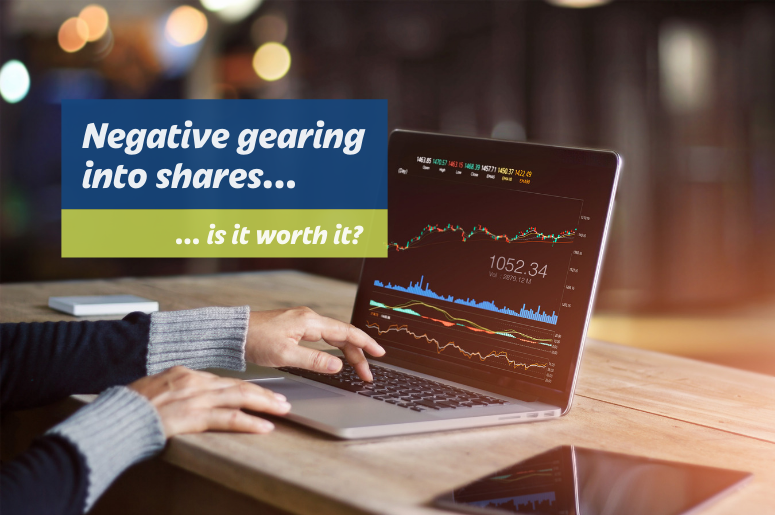Share investors: Is negative gearing into shares a good idea?

Three benefits of negative gearing
There is a lot of talk about the risks of negative gearing but it also comes with some benefits for investors:
1. Tax credits
Investing in quality shares enables you to receive a tax credit on the dividends that you collect. This is made possible by the dividend imputation system (DIS). The franked dividends, as mentioned above, can have a positive effect on your cash flow. This is because the income attracts a small fraction of tax deduction.
2. Builds wealth
You can increase the ability to create more wealth by negative gearing because borrowing allows higher levels of investments than you could normally using your available capital. This means you could multiply your earning potential in a favourable market.
3. Make deduction claims for expenses and interest
Under the current taxation laws, you can make deduction claims for expenses and interest, offset against any assessable income you are making. This includes income such as business, investment or salaries.
Two risks of negative gearing
Of course, any form of investment carries risks, and here are some of those associated with negative gearing into shares:
1. Lower income
There is a high chance that the income you are able to make from the investment will be much lower than what you may have expected. For instance, if you borrowed money to buy shares, the company may pay lower dividends or even not pay any dividends to you at all.
2. Capital risks
What if the value of the shares you bought with the borrowed money turns out to be lower than you expected?
Anyone who borrows money to invest in shares is looking to make capital gains. However, there is no way of telling if the money you make will be enough to cover the remaining balance. It is wise, therefore, to have some money set aside to cover this risk.
Negative gearing into shares: Is it worth it?
Negative gearing is suited to those who are bold and ready to face the potential risks head-on. If you are quite new to negative gearing into shares, it is advisable to first talk to a business advisor. Our Perth-based team can guide you independently to help you see both sides of the coin and ultimately make an informed financial decision about whether it is right for you.
Need help with your accounting?








